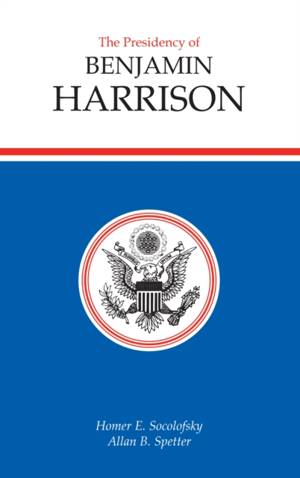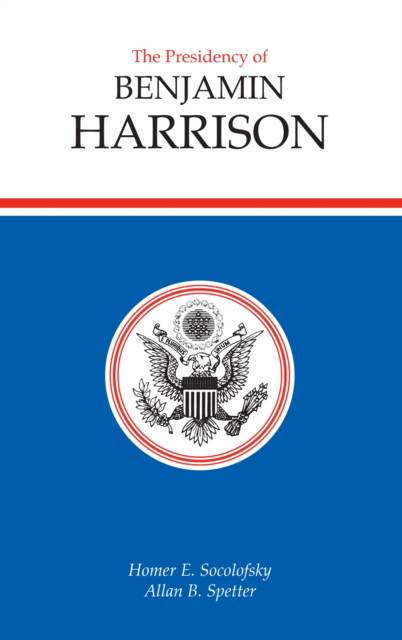
- Afhalen na 1 uur in een winkel met voorraad
- Gratis thuislevering in België vanaf € 30
- Ruim aanbod met 7 miljoen producten
- Afhalen na 1 uur in een winkel met voorraad
- Gratis thuislevering in België vanaf € 30
- Ruim aanbod met 7 miljoen producten
Zoeken
Omschrijving
Benjamin Harrison was an early proponent of American expansion in the Pacific, a key figure in such landmark legislation as the Sherman Anti-Trust Act and the McKinley Tariff, and one of the Gilded Age's most eloquent speakers. Yet he remains one of our most neglected and least understood presidents. In this first interpretive study of the Harrison administration, the authors illuminate our twenty-third president's character and policies and rescue him from the long shadow of his charismatic secretary of state, James G. Blaine. An Ohio native and Indiana lawyer, Harrison opened the second century of the American presidency in a rapidly industrializing and expanding nation. His inaugural address reflected the nation's optimism: "The masses of our people are better fed, clothed, and housed than their fathers were. The facilities for popular education have been vastly enlarged and more generally diffused. The virtues of courage and patriotism have given proof of their continued presence and increasing power in the hearts and over the lives of our people." But the burdens and realities of his office soon imposed themselves upon Harrison. The biggest blow came at midterm with the Republicans' devastating losses in the 1890 congressional elections. In an era of congressional dominance, those losses eroded Harrison's position as a legislative advocate--at least, for domestic issues. His impact in foreign affairs was more lasting. One of the highlights of this study is its revealing look at Harrison's visionary foreign policy, especially toward the Pacific. Socolofsky and Spetter convincingly demonstrate that although Harrison's ambition to acquire the Hawaiian Islands was not realized during his presidency, his foreign policy was a major step toward American control of Hawaii and American expansion in the Far East.
Specificaties
Betrokkenen
- Auteur(s):
- Uitgeverij:
Inhoud
- Aantal bladzijden:
- 280
- Taal:
- Engels
- Reeks:
Eigenschappen
- Productcode (EAN):
- 9780700603206
- Verschijningsdatum:
- 27/05/1987
- Uitvoering:
- Hardcover
- Formaat:
- Genaaid
- Afmetingen:
- 159 mm x 234 mm
- Gewicht:
- 566 g

Alleen bij Standaard Boekhandel
+ 169 punten op je klantenkaart van Standaard Boekhandel
Beoordelingen
We publiceren alleen reviews die voldoen aan de voorwaarden voor reviews. Bekijk onze voorwaarden voor reviews.













